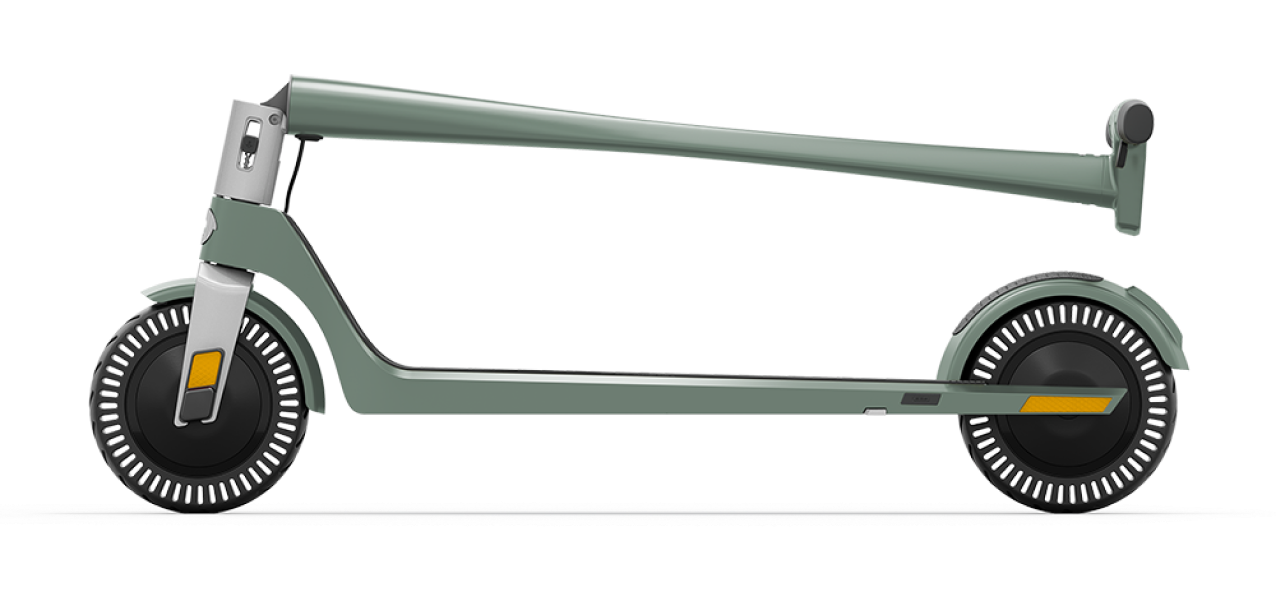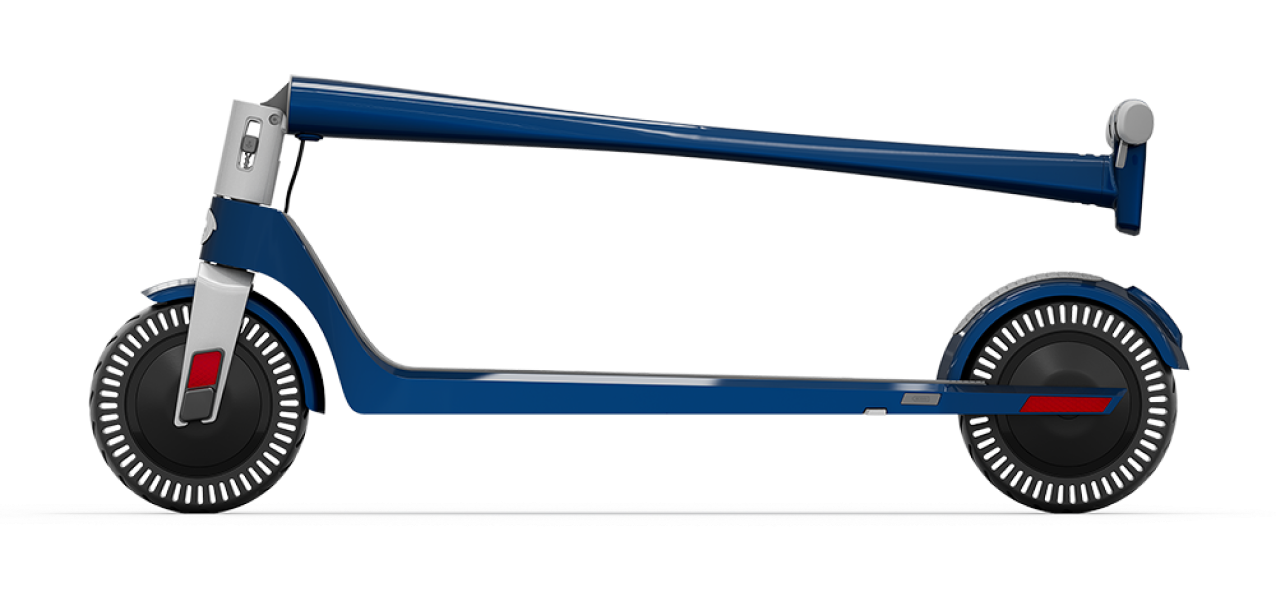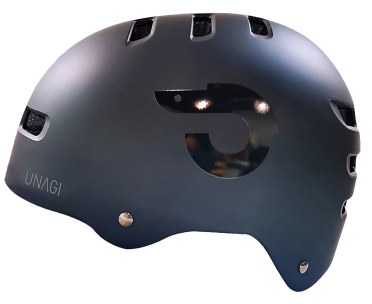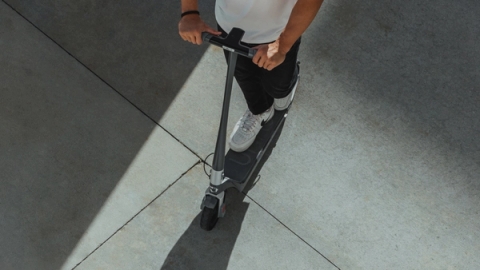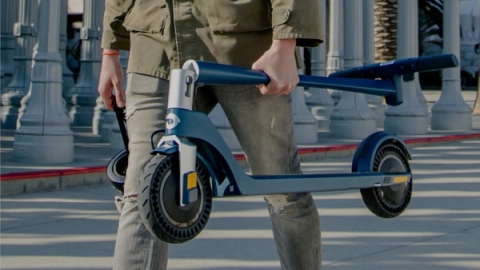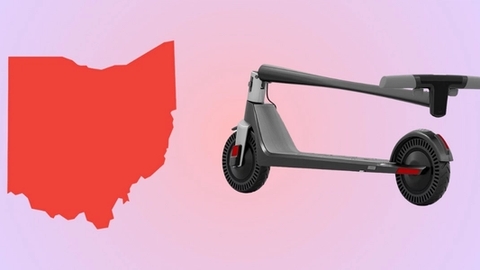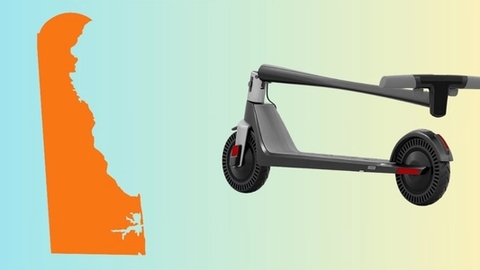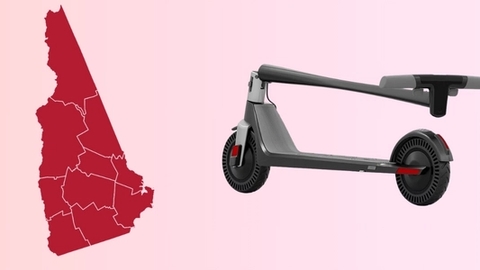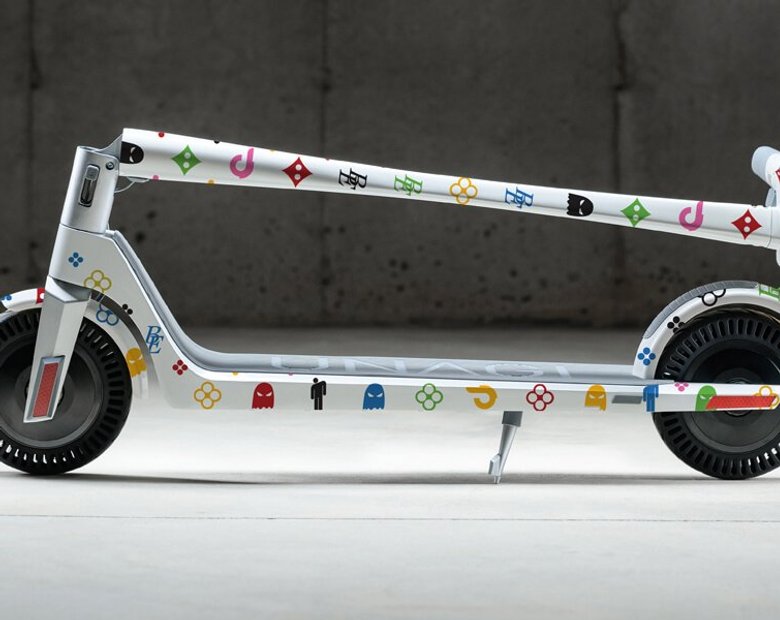Micromobility is here to stay, and it’s changing how we experience urban life for the better. With Unagi’s membership program, you can enjoy all the benefits of a top-tier electric scooter without the sky-high price of ownership or the inconvenience of ride-sharing.
Notice: This article was first published in 2019 and updated in 2021. A new article was published in 2024 with updated updated information: Electric Scooter Laws U.S 2024: State Rules And Regulations
*Disclaimer: Unagi, INC. has used best efforts, but does not in any manner guarantee the accuracy of the below findings regarding electric scooter laws in the United States or internationally. Electric scooter riders or those considering to purchase or begin riding electric scooters should refer to their local governments to obtain the most up-to-date information on the applicable, local legal standing of scooters.
Table of Contents
Introduction
Is your scooter legal? In a massive, growing industry, the opaque nature of the answer to this rather straightforward question borders on the comedic. Laws vary from year to year, from month to month, from state to state, and from country to country. In order to provide a bit of clarity to the micro-mobile community, we scoured through all available, current documentation to provide a definitive guide on electric scooter legality. Although Unagi is based in the United States, we spent a great deal of effort compiling information on not only the varying riding laws from state to state and in popular US cities, but also the regulations of countries around the globe. This document is a living, breathing, evolving pieces of work, and, as the legal landscape for electric scooter riding evolves and changes, this piece will change with it. If you wish to contribute to the growth and accuracy of this piece, please submit your insights to support@unagiscooters.com with relevant citations and references to support your findings. This work is intended to inure not only to the benefit of Unagi riders, but to the benefit of all environmentally conscious citizens around the world who dream of a cleaner, more efficient vehicular future. Please re-publish, share, comment, and critique this piece so that we might push forward what might come to be the most important dialectic of our time.
Background
Lawmakers and enforcers across the world have been wrestling the elephant sized conundrum of shared, electric scooters since Bird hit the scene in 2017. While the shared scooter phenomenon created a low carbon, cheap, and efficient means of transportation for millions of commuters and joy seekers worldwide, it also spurred a deluge of complaints from metropolitan pedestrians. Although scooter sharing has its benefits, it also brings about a number of obvious costs: sidewalk congestion, traffic obstruction, de-beautification, and accidents. The backlash stemming from these costs has caused governments on the city, state, regional, provincial, and in some cases, federal level - worldwide - to evaluate the social implications of electric scooters. While Unagi is not a shared, dockless scooter, government disposition to dockless scooters can, in some cases, inform its legal status. Check your country’s federal law governing electric scooter use and any city or municipality law that may be applicable to scooter status. You’ll be comforted in finding that most major countries welcome electric scooters when ridden in a responsible fashion, and some, like Sweden and Italy, offer substantial subsidies to encourage their purchase.
1. United States Scooter Laws


Alabama
Electric scooters are classified as motor vehicles and require registration tags in Birmingham. The scooter operator must also have a motorcycle license. In the city of Auburn, electric scooters are said to be unsafe and are currently not allowed to be operated on the roads of Alabama. The city of Tuscaloosa also contends the electric scooters aren't street legal.
According to Ken Riley, Partner at Farris, Riley & Pitt, Alabama’s newly enacted electric scooter laws more clearly distinguish a scooter from a motor vehicle, which as of May 30, 2019 had not been contemplated when the laws were originally enacted. Now, municipalities are free to develop ordinances that will cater to the nuances of each community. While some cities struggle with the existence of scooter traffic, others embrace the freedoms and conveniences the concept provides. Hopefully, cities like Birmingham - who are not seeing the benefits of electric scooters - will take note from the experiences of other cities with a track record of scooter usage and work to blend together a working local law that promises freedom and safety for users and the public. The scooter world is not without controversy and it will take careful thought to create the framework of a system that can be a template that other cities can imitate.
Alaska
There is no current information readily available regarding electric scooter law in Alaska.
Arizona
In Arizona, electric scooters with a motor of less than 750 W of power and a top speed of less than 20 mph fall under the jurisdiction of electric or electric-assisted bicycles laws. Arizona has no state or regional law governing the use of electric bicycles, so federal laws apply. These vehicles are required to have fully operable pedals and conform to all of the safety standards of traditional bicycles. Electric scooters that fall under this classification can be ridden anywhere a bicycle can go, including sidewalks and bicycle lanes. These scooters cannot be operated in traffic lanes or on highways and cannot accommodate more than one rider. Arizona’s electric scooter policy allows scooters to be operated at a speed under 20 mph and in bike lanes. No registration or insurance is required.
Arkansas
In Arkansas, you need to be at least 16 years old to ride electric scooters. Additionally, scooters have a required speed limit of 15 mph. Shared scooters must employ an electric motor of less than 750 watts. Shared scooters shall be able to securely stand upright when parked.
California
California’s new electric scooter law passed on January 1st, 2019. Electric scooters are prohibited from traveling at speeds over 15 mph on any public road or bike lane. They are permitted to be ridden on streets where the speed limit is 25 mph, but even in such circumstances, the 15 mph restriction for scooter use stays in effect.
Delaware
A person less than 16 years of age may not operate, ride upon, or ride as a passenger on any motorized skateboard or scooter unless wearing a bicycle-type helmet in the state of Delaware. Motorized skateboards or scooters shall not be operated on public highways, streets, sidewalks, or rights-of-way located within this state. Scooters may be pushed across or along public highways, streets or sidewalks, when the powertrain is disengaged.
Florida
In Florida, electric scooters without a seat are not street-legal and cannot be operated either on the road on sidewalks. Electric scooters do not require registration, and riders over the age of 16 need not wear helmets while riding. However, riders still need to be licensed to ride a motorized scooter in Florida, though any driver’s license is accepted.
Georgia
The state of Georgia allows its residents to operate electric scooters on bike paths, bike lanes, and on roads with a speed limit of 35 mph or less if no bike lane or path is available.
Illinois
Illinois requires all registered vehicles, including mopeds, scooters(or motor-driven cycles) and motorcycles, to maintain liability insurance, which covers damage to others and their property in the event of an accident.
Indiana
In Indianapolis, operators cannot ride an electric scooter on the sidewalk, cultural trail or any of the greenways. Operators must ride electric scooters on the street, following all normal traffic laws. They cannot ride in the bike lane, travel the wrong way on a one-way street; and as with cars, operators must ride with the flow of traffic. One cannot ride the electric scooters in the oncoming traffic lane. Helmets are recommended but not yet required, and electric scooters must be parked leaving four feet of clearance on the sidewalk.
Iowa
A bill moving through the Iowa House Transportation committee defines electric scooters as scooters that weigh less than 100 lbs and are equipped with two or three wheels, handlebars, a floorboard capable of supporting a standing rider, and are powered by the rider or an electric motor capable of speeds up to 20 mph. The bill proposes to treat scooters as bicycles, allowing them on roads, sidewalks, and bikeways.
Kansas
Riders may not operate bikes or electric scooters on sidewalks; they must ride in the street and stay in bike lanes wherever possible. Electric scooters may not be used on sidewalks, and although helmets are encouraged, they are not required. Riders should park scooters close to existing bike parking racks. Riders must also keep electric scooters away from entryways. This includes entrances to businesses, crosswalks, or anywhere else they could pose a tripping hazard to pedestrians. Only riders with valid driver’s licenses may operate electric scooters.
Kentucky
Electric scooters are treated the same as bicycles under Kentucky law, with no requirement to register them with the state or purchase insurance. Scooters can be parked on sidewalks as long as they don't impede pedestrian traffic. The state of Kentucky does not list any helmet requirements.
Louisiana
According to the DMV, Louisiana allows electric, low-speed scooters to operate on sidewalks, bicycle paths, and highways with posted speed limits of 25 mph or less. Only one person is allowed on the scooter at a time. Helmets must be worn while operating scooters.
Maine
Electric scooter operators must always ride to the furthest right side of the road unless the rider is passing another motorist or making a left turn. Electric scooters are not permitted to be operated faster than 20 mph. When riding at night, a scooter must be equipped with, a front light that emits white light visible from at least 200 feet away and a back light or reflector that emits red or amber light visible for at least 200 feet behind your scooter. Electric scooters must also have reflectors.
Maryland
Dockless electric scooters must be equipped with brakes with concealed brake wires, an operational kickstand or other structural feature, so that the vehicle can be stably parked upright, without needing to lean on any structure or object, front and rear lights which illuminate while the dockless vehicle is in use, a decal listing the name of the Permit Holder, a toll-free telephone number and website address on each Dockless Vehicle stating how to report an incorrectly parked dockless vehicle or a dockless vehicle in need of repair, and a unique identification number. Scooters must additionally be equipped with a speed governor that ensures the vehicle will not travel in excess of 15 miles per hour on level ground and which can be programed to “geo-fence” a reduced speed at locations identified by the department of transportation.

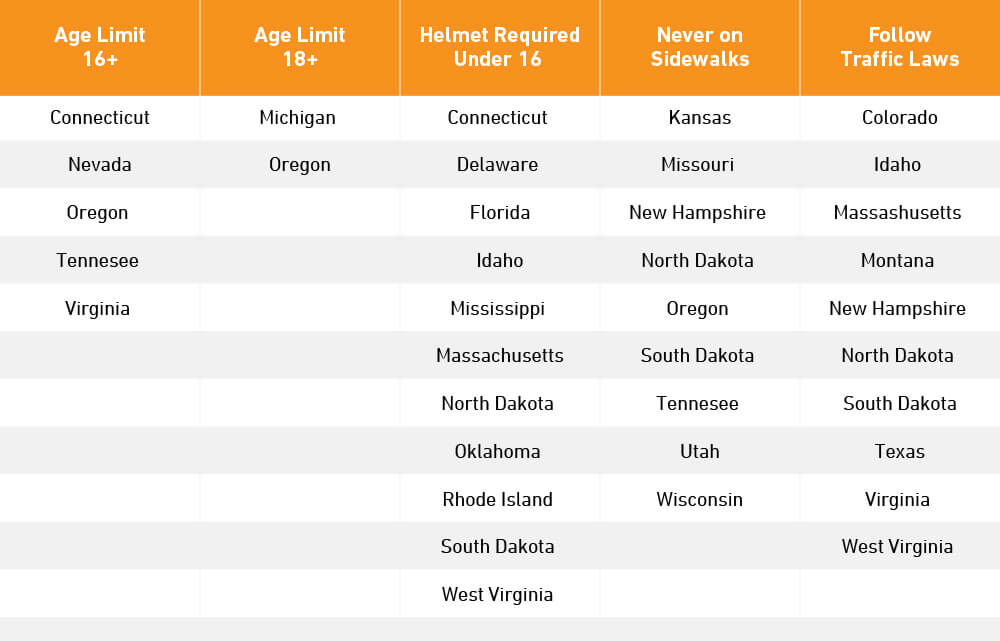
Massachusetts
A bill is in consideration that would require electric scooter riders to wear a helmet if under the age of 16, yield to people walking, and to provide an audible signal when passing. The bill also states that scooters would be prohibited from blocking vehicles or pedestrian traffic when parked. Motorized would also be required to have brake lights and turn signals.
Michigan
An electric scooter is classified as a wheeled device that has a floorboard designed to be stood upon when riding that is no more than 60 inches long and 18 inches wide, is designed to transport only one person at a time, has an electrical propulsion system with power of no more than 2,500 watts, and has a maximum speed on a paved level surface of not more than 25 mph. Scooters are only allowed on streets or highways with speed limits of less than 25 mph, except when crossing. Scooters must be ridden as near to the right side of the roadway as is practicable. Operators must ride no more than 2 abreast (side-by-side). Scooters cannot pass other vehicles between lanes of traffic and cannot operate on a roadway between one-half hour after sunset and one-half hour before sunrise unless the scooter is equipped with a white light on the front that is visible from at least 500 feet away and a reflector on the rear that’s visible from up to 600 feet when in low beam headlights from a motor vehicle. Riders under 12 are not able to operate scooters on roadways, streets, or the highway.
Minnesota
Electric scooters or motorized foot scooters are categorized as devices that riders can stand or sit on (although a seat isn’t required), has handlebars, is powered by an electric motor or an internal combustion engine, has wheels no larger than 12 inches in diameter, and has a maximum speed of no more than 15 mph on a flat surface. Riders must be at least 12 years old to operate a motorized foot scooter, and you not need a license or registration.
Mississippi
A current bill would mandate that electric scooters not be allowed on sidewalks intended only for pedestrians, but could be used wherever a bicycle is allowed. Helmets are encouraged but are not required unless a rider is under 16. No children 14 years or under would be allowed to ride any electric scooter. Additionally, the bill states scooters should be parked upright and not in a manner to impede the right of way. Any scooter left for more than two days in the same spot could be removed. Scooters may not block transit stations, disabled parking spots, curb ramps, and building entrances.
Missouri
Missouri states that electric scooters should be operated in the street, or in bike lanes where available. Pedestrians always have the right away. Riders must always give a verbal warning if they are going to pass. Riders are also required to always obey the traffic controls.
Montana
In Montana, adult electric scooter riders are not allowed to ride on the sidewalk. Pedestrians always have the right away. Electric scooter riders must always give a verbal warning if they are going to pass, and must always obey the traffic controls.
Nebraska
When operating electric scooters on streets, riders must abide by the rules of the road. Users can only operate on streets, and, where available, in bike lanes. Driving on the sidewalk is prohibited. It is unlawful for any person, whether he be the owner, driver or operator of any motorized cart, minibike, motor scooter or motorcycle, to use, operate, drive or race the same on any public property, public sidewalk or public place. It is unlawful for any person in the operation of a motor vehicle to drive or park a motor vehicle along, upon or across any curb or sidewalk except at a duly authorized and established crossing. No person shall drive any vehicle upon a sidewalk except upon a permanent or duly authorized temporary driveway.
Nevada
Nevada legislation mandates a person must be at least 16 years old to ride electric scooters and gives local governments the ability to regulate them, including requiring operators to pay a fee for running a scooter-share program.
New Hampshire
When operating scooters on streets, riders must abide by the rules of the road. The City’s Request for Bids, the Operating Agreements with Lime and Spin, and the user agreements, require users to ride only on streets, and where available, in bike lanes. It shall be unlawful for any person, whether he be the owner, driver or operator of any motorized cart, minibike, motor scooter or motorcycle, to use, operate, drive or race the same on any public property, public sidewalk or public place in the city. It shall be unlawful for any person in the operation of a motor vehicle to drive or park a motor vehicle along, upon or across any curb or sidewalk except at a duly authorized and established crossing. Driving on sidewalk; prohibited; exception. No person shall drive any vehicle upon a sidewalk except upon a permanent or duly authorized temporary driveway.
New Jersey
A new bill proposes that electric scooters can have a maximum speed of no more than 19 miles per hour. Under the bill, low-speed e-bikes and e-scooters are allowed on bike paths unless otherwise prohibited by state or local rules, but they are not generally allowed on unpaved trails.
New Mexico
In Albuquerque, city regulations include: wearing a helmet for riders under 18 years old and riding in bike lanes on the right side of the road. Sidewalk use is allowed if there is no bike lane. Riders must follow traffic laws, signals and signs. Like bicycles, scooters are banned in the Albuquerque Rapid Transit (ART) lanes. Electric scooters that travel faster than 15 miles per hour are not permitted, nor is riding scooters under the influence of drugs or alcohol.
New York
State lawmakers approved electric scooters, however cities have the opportunity to decide for themselves how to regulate the vehicles. Shared scooter companies are not allowed to operate in Manhattan or heavily populated boroughs. Owning your own electric scooter in New York is legal.
North Carolina
Electric scooters are vehicles under North Carolina Law. If the sidewalk is part of the street, then the requirement is that the vehicle be registered also applies before it may be operated on the sidewalk. Riders must be 16 years or older, according to the city ordinance. While not required, riders are encouraged to wear a helmet.
North Dakota
Electric scooter riders are required to stay off sidewalks and bike paths. They are also required to obey all traffic laws and regulations. Electric scooters must have brakes, a headlight, and taillight. Riders must wear a motorcycle helmet if under the age of 18.
Ohio
To ride electric scooters, operators don't need a motorcycle or motor scooter license. Electric scooters are generally legal to ride on streets or in bike lanes, though regulations about where one can ride may vary based on specific city ordinances. Ohio helmet laws do not require that electric scooter riders wear helmets. Ohio motor scooter owners are required to maintain the same minimum level of liability insurance as motorcycle owners. If one rides an electric kick scooter, moped or motorized bicycle, he or she does not have to have insurance.
Oklahoma
Under Oklahoma City ordinance, it's illegal to operate electric scooters along city sidewalks. Initially, Oklahoma police states that it was illegal to operate scooters along city streets, but later clarified that there was not an ordinance that explicitly banned the use of motor scooters. Another ordinance prohibits anyone under 18 from operating or riding a motor scooter without a helmet.
Oregon
Using an electric scooter on the sidewalk and in crosswalks is prohibited. People using electric scooters are allowed on Portland city streets, multi-use paths and in bike lanes. People using electric scooters are required to wear a bicycle helmet. Youth under age 16 are prohibited from riding electric scooters. People using an electric scooter are required to yield to pedestrians. Motorized wheeled devices are prohibited in parks, except on park roads, or in designated vehicle parking areas, or by permit.
Pennsylvania
Electric scooters are illegal to use on roads in Pennsylvania because “these vehicles do not comply with the equipment standards and inspection requirements for motor vehicles, and cannot be titled or registered in the commonwealth,” according to the Pennsylvania department of transportation. “In addition, these vehicles cannot be operated on Pennsylvania roads and sidewalks.”
Rhode Island
Rhode Island’s electric scooter pilot program requires a valid driver's license or municipal ID. Scooters can be ridden on sidewalks or streets, and riders are encouraged to go slow and wear a helmet. On the street, riders are required to follow all rules of the road and obey traffic regulations.
South Carolina
While statewide electric scooter law has yet to be ratified, rideshare scooters from companies like Lime and Bird are banned in the city of Columbia for one year.
South Dakota
Rider under the age of 18 must wear a helmet at all times when riding (even if they are riding as a passenger.) Riders must wear eye protection while driving unless the scooter is equipped with a windscreen that is big enough to provide adequate eye protection.
Riders have to be seated and facing forward while driving, and can’t drive on sidewalks, footpaths, or highways. Riders can’t carry a package or any other object that would prevent you from having both hands on the handlebars or hinder your vision. Riders can’t drive between lanes of traffic and need to change lanes when passing a vehicle. Riders can’t ride side-by-side with other vehicles in the same lane, except for 1 other moped. Riders can’t “hitch a ride” by attaching themselves to another vehicle and can’t carry a loaded firearm while riding.
Tennessee
Under proposed legislation, electric scooters would be required to have brakes, a white light on the front of the scooter and a red light or reflector on the back. No scooter could be used on any sidewalk, unless the use of bicycles on sidewalks is authorized by a local government. The proposed legislation also states that a scooter may be parked on a sidewalk if it doesn't impede reasonable movement of pedestrians. Under the state's proposed legislation, cities can still prohibit scooters from certain trails and paths with local resolutions and ordinances. No scooter can be used by more people than it was designed for.
Scooters should be ridden as close as practical to the right-hand curb or edge of the road, unless passing another vehicle traveling in the same direction, making a left-hand turn or when needing to avoid an object, vehicle or pedestrian. Electric scooters should not travel faster than 15 mph. A person shouldn’t carry an item while riding a scooter if it prevents them from keeping at least one hand on the handlebars.
Texas
In Texas, a motor-assisted scooter may be operated only on a street or highway for which the posted speed limit is 35 mph or less. Traffic laws which apply to bicycles also apply to motor assisted scooters and the operator must obey the usual traffic laws that bicycle operators must obey such as speed limit, signal turns, etc. There are some laws that apply to a motor vehicle do not apply to electric scooters, for example, riders do not need a safety inspection, a driver’s license, registration or insurance to operate an electric scooter with up to 750 W motor.
Utah
In Utah, to ride an electric scooter, there is no requirement to have a driver’s license or driver’s permit. But, there are age restrictions. Anyone under 15 years old must be in the direct supervision of a parent or guardian. Children under 8 years old are not allowed to ride scooters on public property, this includes sidewalks, pathways, and roadways. Children under 8 years old are not allowed to ride scooters, and if they do, their parents or guardians may be ticketed. A person may not operate a motor assisted scooter (electric scooter) in the following areas: in a public parking structure; on public property posted as an area prohibiting skateboards; on a highway consisting of a total of four or more lanes designated for regular vehicular traffic; on a highway with a posted speed limit greater than 25 miles per hour.
Vermont
Scooters and electric bicycles are treated as vehicles and must ride on roadways and not sidewalks. The default for maximum e-assist scooter speed is 15 mph maximum. Riders must still follow all existing regulations and applicable laws.
Read more: https://www.burlingtonvt.gov/sites/default/files/EBikesScooters_FAQs.pdf
Virginia
While statewide scooter information on Virgina is not available, information on regulations in Arlington County is accessible. In Arlington, riders have to be at least 16 years of age, but don’t have to wear a helmet. The county asks people not to park scooters in travel lanes, blocking walkways, blocking driveways, or at entrances to buildings. The county also states there is no regulation that prohibits riders from operating scooters on sidewalks. However, off-street bicycle paths may not be used by electric scooter riders. Scooters must be parked on public sidewalks or at bike racks, but not in a way that they are an obstruction.
Washington
In Washington, riders can operate their electric scooters on roadways, on highway shoulders, and in alleys. Riders cannot operate on sidewalks, bike lanes, or other public walkways, or on any roadway where the speed limit exceeds 35 mph. Riders cannot operate an e-scooter on playgrounds or schoolyards. Riders who suffer from a disability and use their e-scooter to increase mobility can operate their vehicle in any of the previously mentioned locations, except on roadways that exceed 35 mph.
West Virginia
All mopeds must be titled and registered through the local Department of Motor Vehicles (DMV). Riders and passengers must wear helmets while operating the moped. A moped’s handlebars must not exceed the height of the seat by more than 15 inches. Riders must keep their seats in proper adjustment while riding. Riders must not carry passengers unless their vehicles are specifically made to do so. This means obtaining a vehicle with a second seat or a sidecar. Riders must equip their moped with a rearview mirror that is visible while operating the vehicle. Riders must obey the same traffic laws, lights, as other roadway vehicles do.
Wisconsin
The Wisconsin state Assembly has signed off on a bill to regulate electric scooters on roads and sidewalks. According to the measure, scooters must weigh less than 100 pounds and abide by a 15 mph speed limit. Local governments could prohibit their use on sidewalks or streets with speed limits of more than 25 mph as well as restrict public rentals.
Wyoming
There is no current, available information on electric scooter law in the state of Wyoming.

Electric Scooter Use in the USA
At the onset of the e-scooter legality debate in the United States, it seemed as though electric scooter regulation would fall under the auspices of a 2002 federal law governing electric bike classification. According to this law, an electric bike would be considered street legal if its maximum speed could not exceed 20 mph and possessed a motor under 750 W of power. If at or below these specifications, these bicycles would not require that their riders obtain any type of registration. Over time, the United States Department of Transportation - through its National Highway Traffic Safety Administration division - came to define when scooters would not qualify as motor vehicles (and be subject to their standards). According to the NHTSA website:
The following scooters or scooter-like vehicles are not “motor vehicles” that must be manufactured to comply with all applicable FMVSS and be so certified to be lawfully imported into the United States:
- Scooters lacking seats that are operated in a stand-up mode.
- Scooters that are incapable of a top speed of 20 mph or greater.
- Electric bicycles with operable pedals, and an electric motor of 750 watts or less, whose maximum speed on a paved level surface, when powered solely by such a motor while ridden by an operator who weighs 170 pounds, is less than 20 mph.
By these standards, the Unagi qualifies as legal on the Federal level, as do many of the scooters in the ride-share department. Despite federal guidelines, many cities across the States have implemented their own regulations governing electric scooter use. It should be noted that, at the city level, a ban on dockless electric scooters might not constitute a ban on all electric scooter use. Many cities banned the popular scooter rideshare platforms prior to instituting pilot programs to evaluate their use. During this banned period, it remains unclear whether owned electric scooters were technically allowed, but, given federal guidelines, it would seem that they indeed would have been permitted for use without explicit, specified legislation against their use.
While Bird, Lime, and its competitors can still be seen scattered across Los Angeles through the city’s pilot scooter share program, the once omnipresent brands have been ejected from New York City - which had technically implemented a ban on electric scooters in 2004 - but are due to return to New York in a statewide fashion (save Manhattan) in the immediate future. A facet of the Los Angeles program, which no doubt helps to eliminate many pedestrian worries, includes ridesharing companies’ staffing of 24 hour scooter removal specialists to handle scooter pickup from sensitive areas. Washington D.C. instituted a formal pilot program in 2018 for dockless scooters, and they can be ridden anywhere bike lanes exist in the city. In June of 2018, Miami banned scooter use, but has initiated a pilot program through which all major rideshare companies are allowed to deploy 50 scooters each with a flexible ceiling stretching to 100 scooters each depending on popularity. Similar pilot programs have sprouted in a number of US cities which first opposed electric scooters - like San Francisco - and other cities have lifted restrictions in even larger ways, as is the case in Boston. Given the number of cities in the States, prospective riders should refer to their local governments to make sure that federal guidelines are observed before engaging in scooter use.
2. International Electric Scooter Laws

Canada
Much like the United States, the Canadian federal government recognizes electric scooters as power assisted vehicles that do not require a specific license. The specific usage of scooters however, is determined at the local level. Also, much like in the States, regions and cities in Canada that once opposed electric scooter use have instituted ride-share pilot programs, like Calgary and Quebec. Again, as in the States, there seems to be a dislocation between general electric scooter use as determined by the Canadian federal government and the acceptance of dockless scooter programs on the municipal level. Indicators would point that owned, personal electric scooters are a green light unless otherwise prohibited in major Canadian cities.
The United Kingdom
Unlike electric bikes, electric scooters are classified as personal, light electric vehicles and are only legal for use on private land. It will be interesting to see how this regulation might change over time, and British scooter enthusiasts should refer to their local governments prior to making a purchasing decision.
France
Recently, France instituted a law that permits electric scooters to be ridden on cycling paths or the street, but prohibits their use on sidewalks. This stems from the same types of complaints issued by pedestrians in the United States surrounding scooter littering and congestion brought on by the ridesharing model.
Germany
Germany’s Minister of Transport, Andrea Scheuer, passed a bill governing electric scooter use this Spring which paved a way for a cleaner, more efficient Germany. According to the bill, electric scooters with a maximum speed of 20 km/h would be allowed to be ridden on bike paths or lanes by civilians 14 years of age or older. Scooters with a maximum speed of 12 km/h are allowed to be operated on bike lanes, paths, and on sidewalks by children 12 years of age and older.
Italy
Italian law appears relatively friendly toward electric scooters, going as far as to offer a 30 % subsidy to purchasers of electric scooters with performance matching a 125 cc combustible engine - maxing out at around 30mph - if the buyer scraps an older, gas powered scooter in the process. The country’s capital, Rome, accepted a plan in January to prepare for the launch of dockless scooters, and seems open to all electric vehicles. Again, it is best to check with your local authority, but Italy remains one of the more enthusiastic electric vehicle supporters in Europe.

Sweden
In August of 2018, Daniel Hellden, Transport Minister of Sweden, gave dockless scooters his seal of approval. Since then, the use of e-scooters - particularly in Stockholm - has come under scrutiny following a fatality and many minor accidents and injuries. For now, it would seem that electric scooters are still encouraged, with a purported government subsidy of 25 %.
Spain
Dockless scooters caused a stir in late 2018 when they hit major metropolitan cities in Spain, which have thus far worked to launch somewhat prohibitive regulation. While these laws vary city to city, Barcelona prohibits electric scooters on sidewalks and walkways, but allows them in bike lanes and those with unique platforms that accommodate both pedestrians and riders.
Mexico and Latin America
In July of last year, dockless scooter startup Grin began to penetrate both Mexico and Latin America without much opposition. Lime can be found in Mexico City, Bird has plans to launch in Brazil, Cosmic Go is visible in Columbia, and Movo is working to launch in Mexico, Peru, Columbia, and Chile. The list of active entrants into the Latin American shared scooter market continues, and it would appear that most larger countries are favorable towards e-scooters, but, as always, check local law before committing to a purchase.
South Korea
Although electric scooters can be seen lined across the sidewalks of South Korean cities nationwide, the country’s federal Road Traffic Act categorizes and treats PMD’s (one-person vehicles powered by electricity) as motorcycles, requiring riders to stay in car lans and wear helmets. In addition, riders over the age of 16 are technically supposed to have a license. That said, riders typically don’t follow these rules, and enforcement has been historically lax. Interestingly, although the current law has categorized PMD’s as motorcycles, there is no law mandating that devices like electric scooters acquire the government safety certifications typically tied to motorcycles.
While federal regulations have yet to be amended, The Korean Ministry of Trade, Industry, and Energy has begun a sandbox program in Gyeonggi province (which contains Seoul) to allow the use of electric scooters in bike lanes as long as riders demonstrate responsible practices and operate vehicles with 15.5 mph caps. Amendments to federal regulation are currently being discussed in The National Assembly, but there is no speculative date on the adoption of new PMD law.
Thank you so much for checking out our piece on electric scooter legality. Please keep coming back to this post for updates on changes and information on additional countries and locations as they become available!
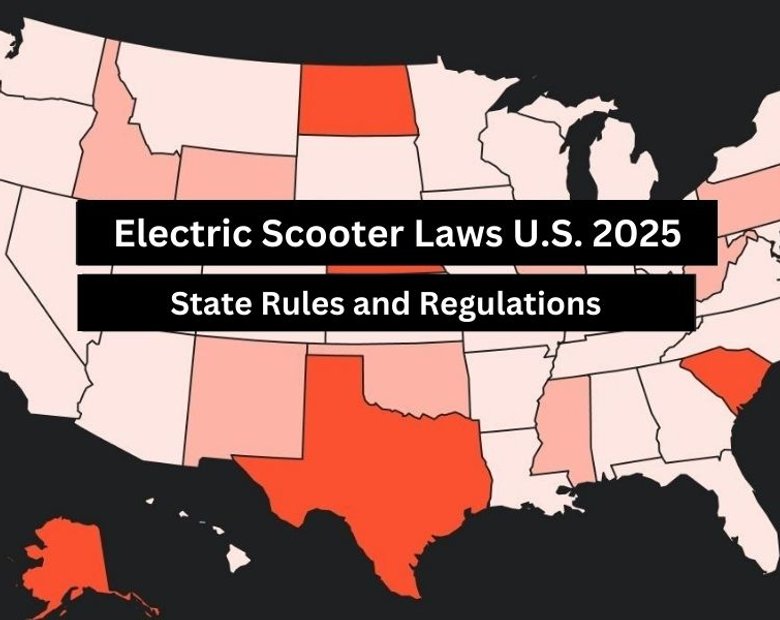
Stay current with the latest U.S. electric scooter laws in our 2025 guide. Updated annually since our first comprehensive guide, ensuring you have the most recent state and city regulations to ride responsibly”
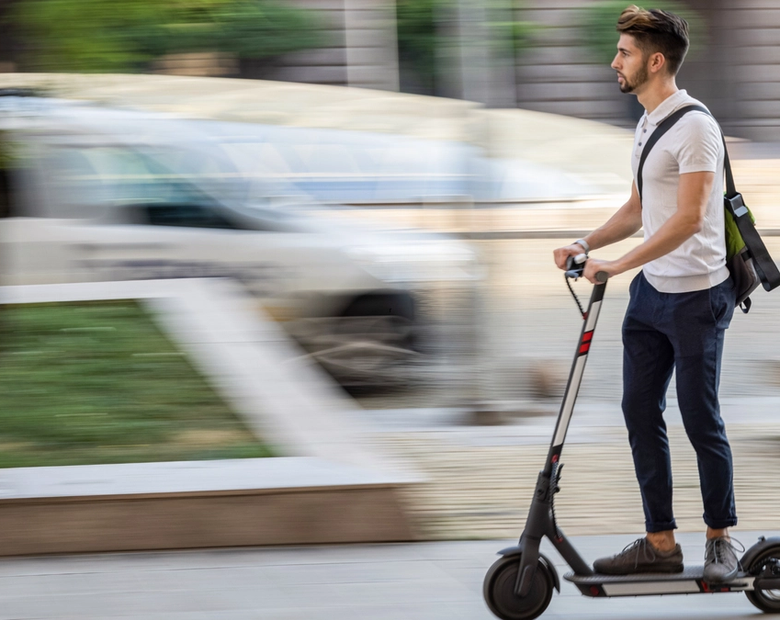
The Slack Core 920R is currently the fastest electric scooter in 2025 that you can purchase without the need for pre-order.
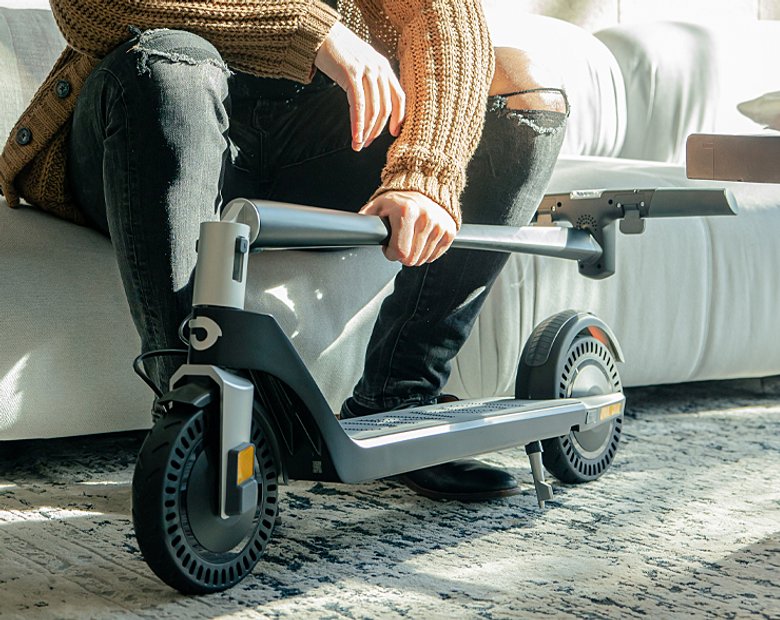
Our selection of the best electric scooters 2025 spans the fastest e-scooters to the most portable ones, the ones designed for city riding and off-road, the best scooters for rain, budget electric scooters for students, and more powerful ones for skilled riders.
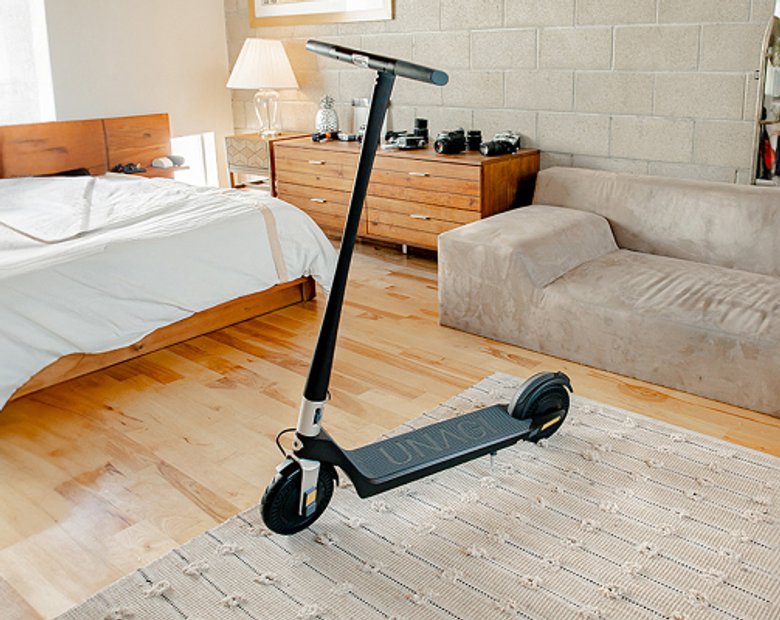
The Unagi Voyager is the best lightweight electric scooter for adults and teenagers. It is the ultraportable sequel to its predecessor, the Unagi Model One Classic.
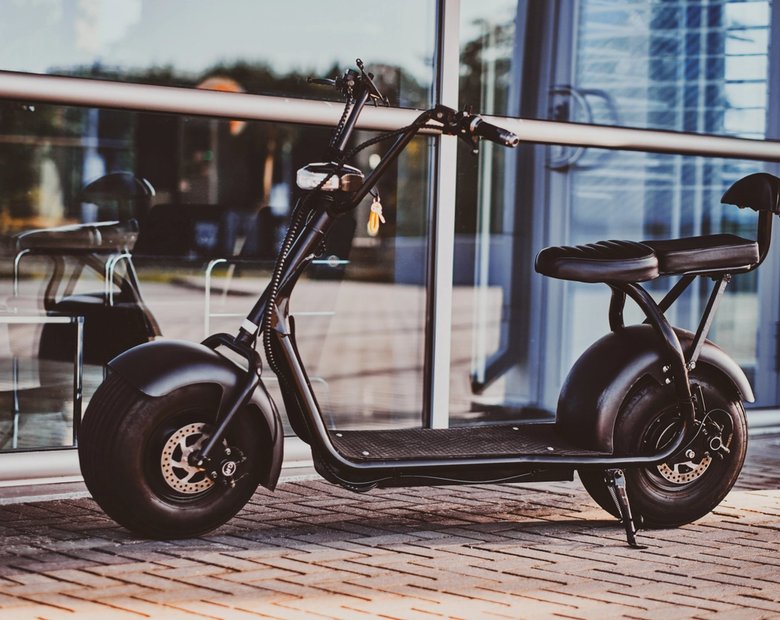
If you're wondering whether an electric scooter with a seat is right for you, this is a detailed article that would suit your need.
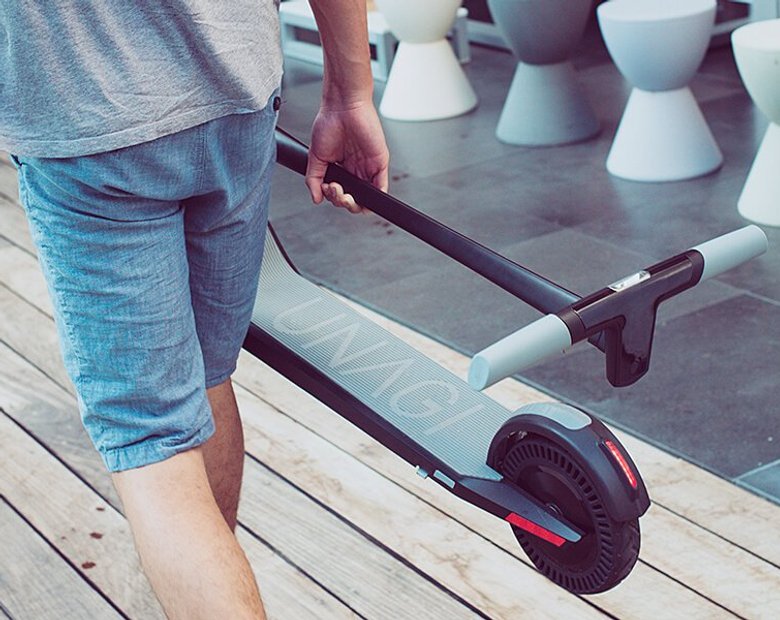
Understand which personal electric vehicle is best, the choice between an electric bike or electric scooter might already be made for you by some critical factors, including portability and storage capacity.
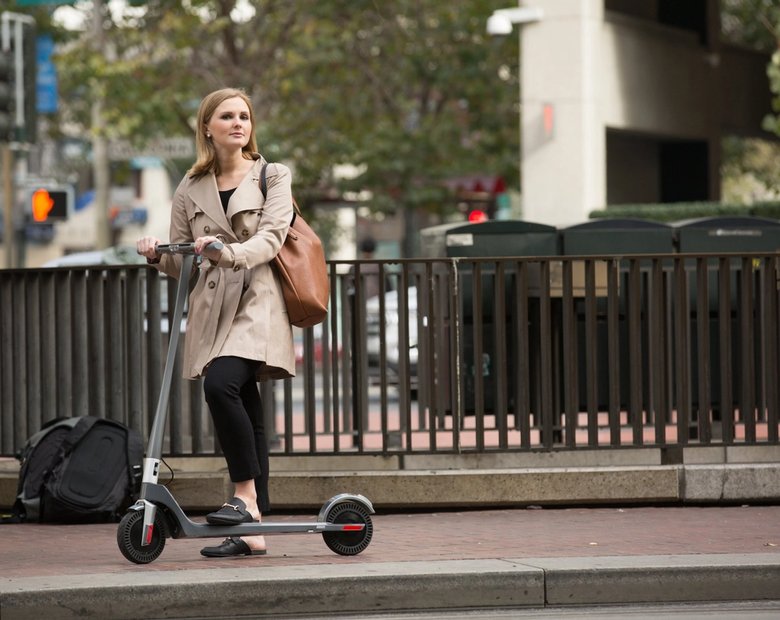
In the U.S., most states don't require a license. For those that do, they usually just ask for a regular driver's license or a learner's permit.
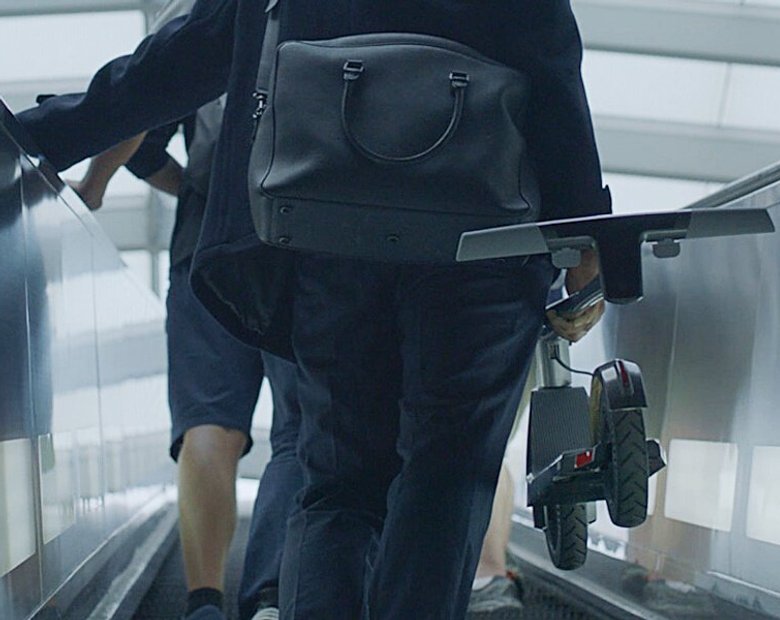
Yes, you can bring an electric scooter on a plane, but it needs to have a lithium battery smaller than 100 watt-hours, which most don't.

Manufacturers advise against riding electric scooters in the rain. The main reasons are: water can fry the electronics, make the ride dangerous, and void your warranty.

The basis and the premise of my work is that we either operate out of love or we operate out of fear...Time is currency. The coolest thing about the scooters is that it's really quick, and it goes uphill. From there, traveling more efficiently and having a good time doing it--I think that's the most important thing.

Cynthia Leu has a full plate. A tech worker by day, Cynthia spends her off time balancing the parallel lives of a powerlifter, entrepreneur, mental health advocate, and more. Riding Unagi helps this USMC veteran cut down on everyday…

https://www.youtube.com/watch?v=7m2hVBE62LY Rasheed Muhammad is sick of Los Angeles traffic. In order to preserve his sanity, Rasheed has traded his everyday driving habit for the portable and beautiful Unagi Model One. It’s an essential accessory for navigating LA streets -- and…

Rich Lee, Co-Founder of San Francisco’s SPRO Coffee Lab, wants to share his love for coffee with the world. He depends on riding Unagi to avoid the hassle of navigating the parking crunch in the booming Mission Bay neighborhood.…

